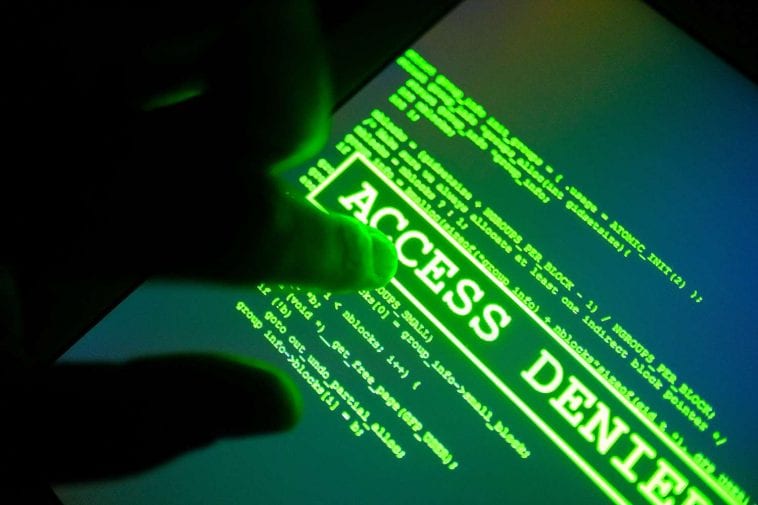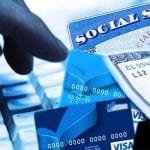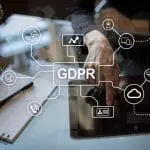Of all the crimes and issues going on in society today, identity theft would be one of the highest-ranking, and it continues to grow worse each day. This had begun when various media were born in line with the ongoing innovations and upgrades in technology.
Identity theft is described as the crime of using somebody else’s name, address, profession, credit details, etc. that are all supposed to be personal and can only be used by that one single person. It is like robbing someone of his entire identity, using it to make transactions with banks, stores, and others that the real person never permitted any other person to do on his behalf.
In the fast-growing world, people live in today, staying away from these dangers and threats is impossible, but certainly, the risk can be made less through some simple steps that you can do. Accepting that scammers, hackers, and phishers are everywhere is the first one, so it will be easier for you to convince yourself of the necessity to perform these important steps.
Before you become sorry for not taking this seriously, you must take some preventive measures to fight this kind of fraud as soon as you can. Once a scammer already got hold of your details and files, it’s going to be so hard to take it back. You might end up in a trial yourself without you knowing what you did wrong.
Take action before it’s too late and try out the steps described below.
How to Prevent Identity Theft
- Make a strong, unique password for your online accounts. Never stick to just one password. It may be easy for hackers to trace your password if that’s what you are going to make. Also, use special characters as well as numbers for a hard to decrypt the password.
- Don’t post anything that is supposed to be kept private in any online sites. This includes payslips, credit cards, IDs, and other files that can tell something delicate about you and your activities. Scammers are just around waiting for someone to victimize online, either someone they know or other careless users.
- Think many times before posting anything, especially about your personal identity. The decision on whether to post something or not must be thought about many times over. Hasty decision-making is not an answer if one wants to achieve protection from hackers. Rethink about why you would need to post such content before clicking ‘Upload’ and before it’s too late.
- Watch out and monitor your account for anything unusual that could be a sign of phishing scams. Always try to notice what happens to your accounts, especially when it comes to your withdrawals and payments. You might not be aware that deductions are being made to your money without your permission.
- Take extra care when making online transactions. Online shopping is the trend these days instead of personally going to shops like before. Especially during this time of the pandemic, clicking and swiping whatever you like online is what works better for everybody. However, the more tempted scammers become, too, so more carefulness is needed.
- Set your browser in high-security mode. Your system and your browser’s settings play an important role also in keeping every user safe. It is up to you, though, to set everything right from the start so they will work effectively. Keep it in high-security mode and always check it for any updates and issues.
- Always clean your operating system to fight away spyware. Hackers are like scammers, too, who are breaking into other people’s accounts to gather information and use them for fraudulent accounts. They use all sorts of spyware and computer viruses to steal data from every computer.
- Update your system and other software regularly. Your computer does not have to be very expensive to deserve a regular update. Not even cheap ones are exempted from the harm that spyware, malware, and some other viruses cause, so you have to make updates on them all the time, too.
- Destroy everything about you that has been shared online, including important documents. There is a huge chance that you will become prone to getting scammed if your information and records are everywhere in the net or in your office, making it available to scammers around. That is also why deleting cookies, cache, and history are often advised to users.
- Make a backup of your files. Since you are required to delete all of the files you keep on your computer, it would be helpful also to have another copy of it before doing so.
Financial Safety from Identity Theft

The more common reason why scammers hack on someone’s account is that they are in need of some money, which they think somebody already has been keeping in his online banking accounts, e-wallet, or atm. Otherwise, some also try applying for loans using another person’s name and identity.
This sounds more alarming, isn’t it? Like one day, you wake up, and you are broke with nothing’s left for you. Money is everybody’s need, and so it is so tempting for anyone to have even in small amounts for that seriously means a lot. How much more if they can have it in a snap without shedding sweat for a huge sum of money, right? That’s why scammers are everywhere, and you must do your best to avoid them.
To help you in protecting your financial accounts from these vicious cybercriminals, here are some of the necessary steps you can try.

- Disable your credit – your credit cards are what keeps the money that you can withdraw anytime you desire from an ATM. Thus, if someone gets into the details of your credit card, such as your PIN, then their next step would be to withdraw some or all of your money without you knowing it.
- Never share your social security number to anyone. This is a very special set of numbers that is like a key to your personal information. When asked for it, know first why it is necessary for you to give it to them. Carrying your SSS card with you anywhere is also not advisable because it might be stolen from your wallet.
- Always create a strong, distinct password or change it from time to time. Your PIN is as important as your money because once they knew about your PIN, they can already decipher away into your account and get as much money as they want without your knowledge.
- Set the alerts for all your accounts. Make sure that you are aware each time someone is trying to get through your accounts like a verification or authentication program.
- Monitor your emails. Check your inbox regularly and make sure that you remember each of the changes that happen to it every day.
- Protect all your devices, including mobile phones and PC. Mobile phones must be given ample attention since it is something you always carry with you and which can be prone to snatchers and pickpockets. If you are storing some important data or files like pictures of you in your mobile phones, extra caution is highly recommended to avoid the leak of information.
- Create your own digital wallet. This wallet may serve as your source of payment for each of your purchases online. It is safer because those sites provide a secure copy of your cards. Everything is encrypted, too.
- Monitor your credit information and reports always. See to it that you always check your bank accounts for any recent activity performed. Reports should always be updated and complete for easier tracking of payments and withdrawals.
- Dispose of and shred all important printouts, such as bank documents and papers. Never leave any evidence of your transactions, including the money you took and your balance. Most scammers get tempted with a several-digit amount of money.
Other Causes of Fraud

Some people are fine with trying online accounts for security and confidentiality. However, not everything is found on the internet for you to use in your every day like, such as your ATM. You may use them for the money you need to pay in cold cash. Thus, a different risk is met for transacting physically through cash.
Identity fraud may be avoided by following the steps below.
- No trace of your PIN must be visible in the keypad of the machine. When you enter your PIN, it is important to make sure no fingerprint nor any mark is left in the keypads for scammers to see. At the same time, withdrawing money only in safe areas is advised, too.
- Carry only the cards that you will need for the day. It is not advisable that you always keep everything with you because it can only cause temptation among people.
- Don’t leave your bags and purse just anywhere you like. Doing such acts will just make a thief’s job easy breezy.
Final Thoughts
Having to share various personal information online or anywhere else is truly a problem. If you love yourself, you should also remember to take good care of yourself and your identity, too. Doing those simple steps is a good start for avoiding identity theft.



